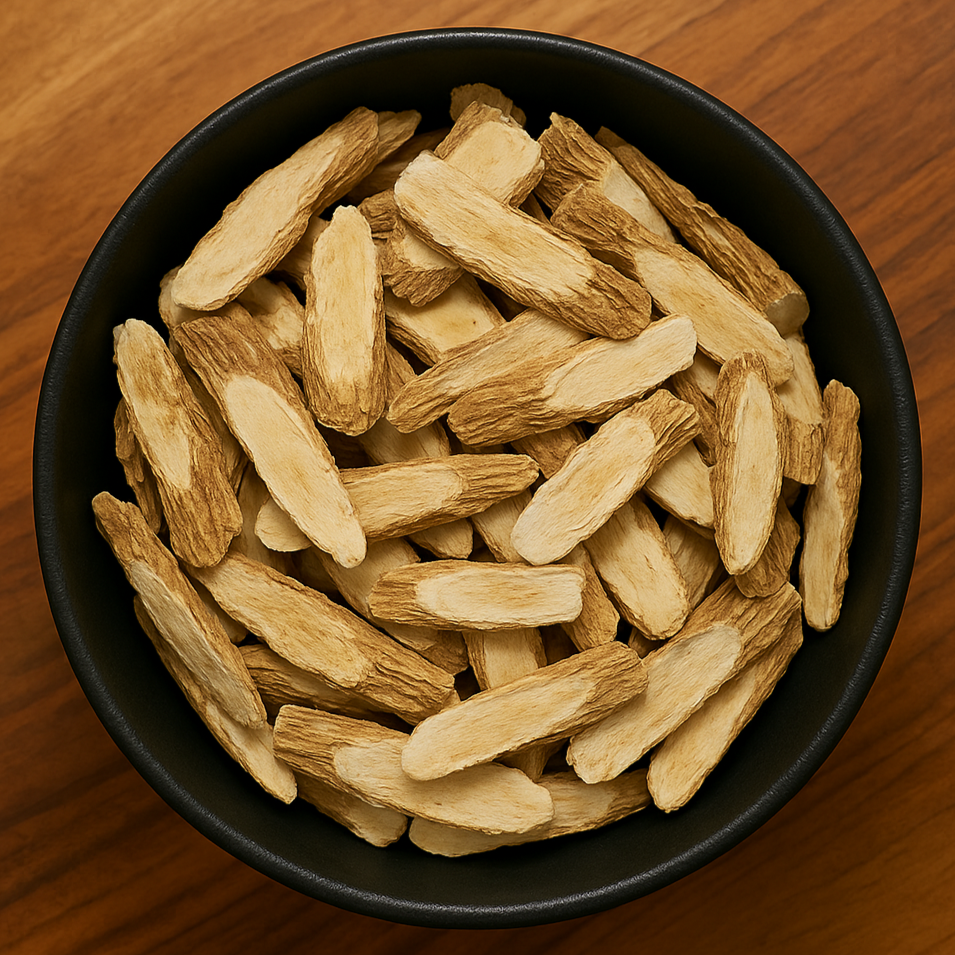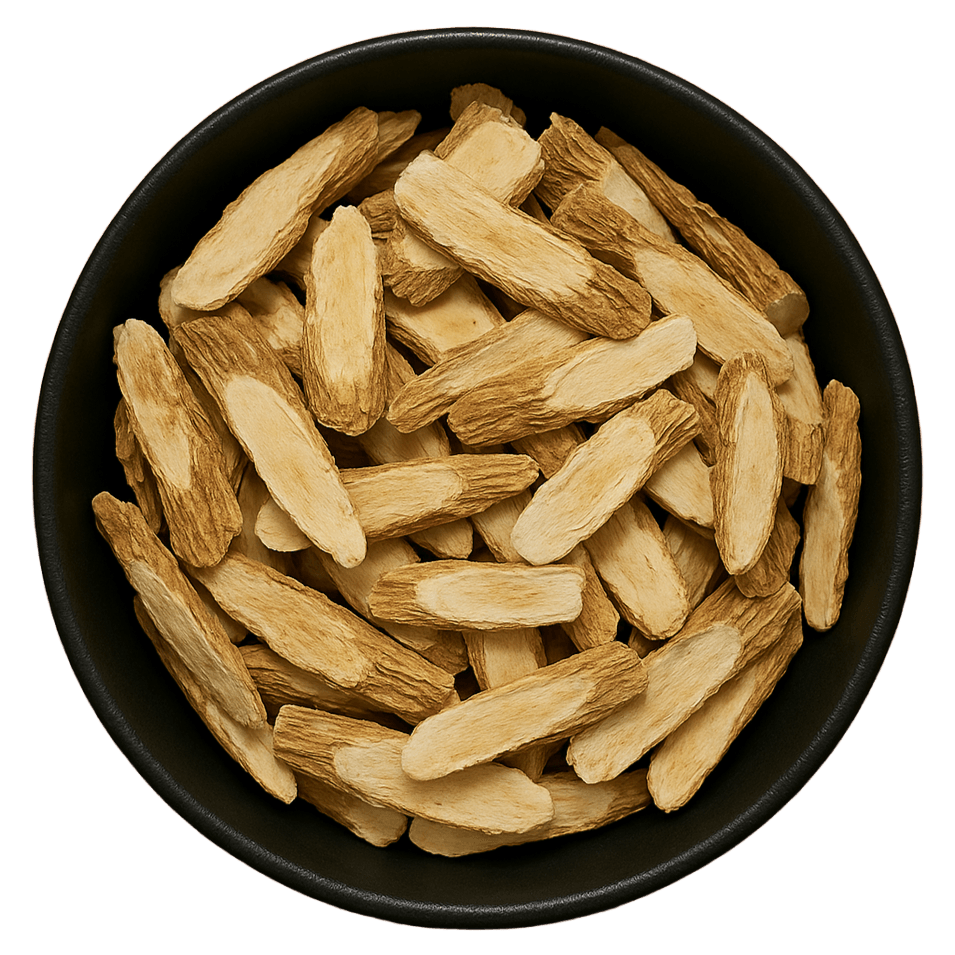Millettia Root Whole (Millettia Speciosa)
Millettia Root Whole (Millettia Speciosa) - 1 oz is backordered and will ship as soon as it is back in stock.
Couldn't load pickup availability
Millettia Root Whole (Millettia speciosa), known in Traditional Chinese Medicine as Ji Xue Teng (鸡血藤), is a sweet, slightly bitter, and warming root traditionally used to invigorate the blood, nourish blood deficiency, and relax the tendons and sinews. These whole root segments are thick, woody, and richly colored, often resembling the deep red tone of circulating blood, which reflects their use in promoting healthy blood flow and movement.
In TCM, Ji Xue Teng is commonly prescribed for symptoms of blood deficiency or stagnation, such as fatigue, numbness of the limbs, irregular menstruation, or poor circulation. It is also valued for its ability to support joint flexibility and muscle recovery, making it useful in formulas for bi syndrome (painful obstruction), sports recovery, or age-related stiffness.
Outside of TCM, Millettia speciosa is used in folk medicine across parts of Asia for its tonifying and blood-building effects, especially for individuals recovering from illness or childbirth, or experiencing general weakness.
When decocted, Millettia Root Whole produces a reddish-brown infusion with a mildly sweet and earthy flavor, often combined with herbs like Dang Gui (Angelica sinensis), Hong Hua (Safflower), or Chuan Xiong (Ligusticum) to enhance blood-nourishing and activating properties.
Each batch of Millettia Root Whole (Millettia speciosa) is carefully sourced, dried, and preserved to maintain its traditional energetic properties and herbal strength. Whether used in tonic teas, blood-invigorating formulas, or musculoskeletal support blends, Ji Xue Teng offers a gentle yet effective means to support circulation, nourish the blood, and ease physical tension.
Also Known As: Niu Da Li, Millettia Root, Radix Millettiae Speciosae, Spatholobus Root (regional overlap), Strength-Boosting Vine Root
Nutrients: Alkaloids (matrine, oxymatrine), flavonoids, triterpenoids, saponins, tannins, trace minerals (calcium, zinc)
Notes: Traditionally used to strengthen muscles, bones, and lungs. In modern use, it's popular in tonics for fatigue, recovery, and joint support. Often brewed in soups or decoctions. Mild and generally well tolerated.






